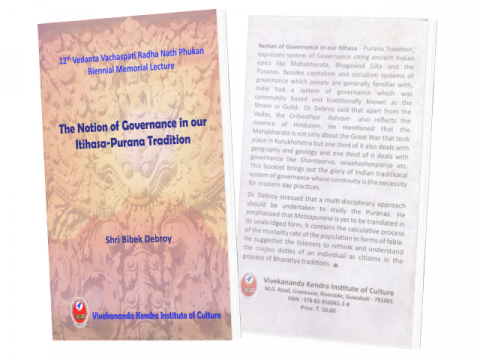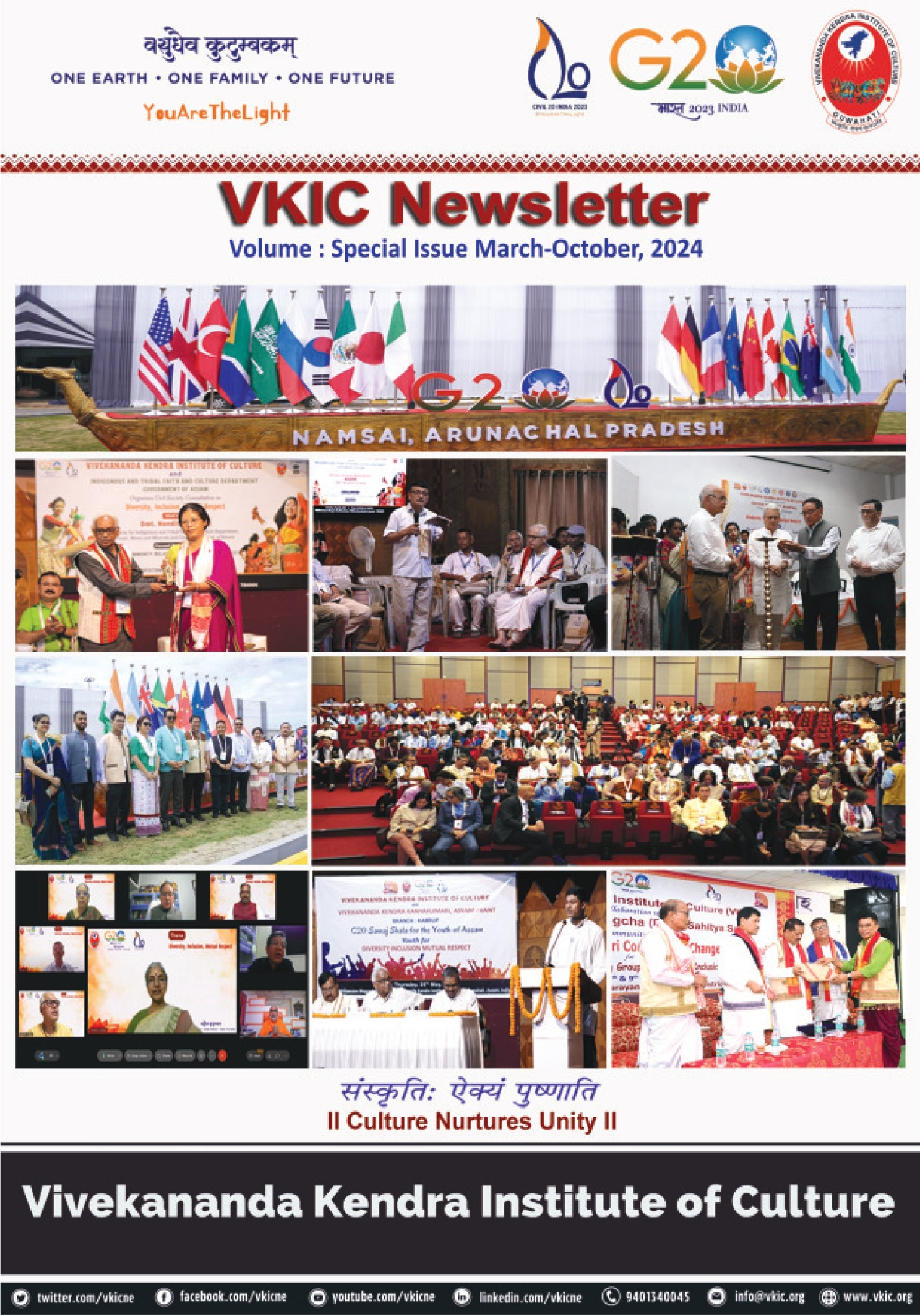
The Notion of Governance in our Itihasa – Purana Tradition by Shri Bibek Debroy explores the concept of governance as depicted in ancient Indian texts known as Itihasas and Puranas. Shri Bibek Debroy, an eminent scholar and expert on Indian scriptures, offers a thought – provoking exploration of ancient Indian wisdom on governance, presenting valuable insights that can inform contemporary discourse on governance, leadership, and public policy. He meticulously examines Itihasas and Puranas to extract insights into the principles and practices of governance that were prevalent in ancient India. Here’s a synopsis of his insights:
- Dharma as the Foundation: The author examines the role of kings, rulers, ministers, and other stakeholders in governing society, highlighting the importance of dharma (righteousness). Dharma serves as the guiding principle for rulers, shaping their actions and decisions for the welfare of society.
- Models of Rulership: Drawing from the epics like the Ramayana and Mahabharata, the author explores various models of rulership embodied by legendary figures such as Rama and Yudhishthira. These models exemplify different facets of leadership, including integrity, compassion, and adherence to moral principles.
- Social Organization: Within the Itihasa-Purana tradition, the author examines the hierarchical structure of society delineated by the Varna and Ashrama systems. He elucidates the duties and responsibilities assigned to different segments of society, emphasizing the importance of harmony and cooperation.
- Rajadharma and Governance Principles: The author delves into the concept of Rajadharma, the duties of rulership, as outlined in the scriptures. He discusses the principles of just governance, including the dispensation of justice, protection of subjects, and promotion of prosperity.
- Consultative Governance: The author highlights the significance of consultation and advice in governance, echoing the tradition’s emphasis collective decision-making. He explores the role of assemblies and councils in shaping policies and resolving conflicts.
- Divine Guidance and Karma: The author discusses the role of divine guidance and karma in governance, underscoring the belief in the cosmic order and the law of cause and effect. Rulers are portrayed seeking counsel from sages and divine beings, recognizing the consequences of their actions on individuals and society.
- Relevance to Contemporary Governance: Finally, author reflects on the enduring relevance of these principles to contemporary governance. He draws parallels between ancient wisdom and modern challenges, advocating for ethical leadership and the pursuit of the common good.
In summary, Shri Bibek Debroy provides a comprehensive analysis of governance within the Itihasa- Purana tradition, illuminating its ethical, spiritual, and practical dimensions. His work serves as a valuable resource for understanding the rich heritage of Indian governance philosophy and its application in today’s world.
Get your copy of "The Notion of Governance in our Itihasa – Purana Tradition" now
Mokshada Choudhary is 16 years old and presently studying in class XI at DPS school. She is a national-level sports player in fencing game. She is avid writer and authored 03 published books till now. She is running a project named fence the future, which encourages underpreveilages childrens to join the sports in various schools. She is a community worker for old age home and special childrens. She is pursuing economics in her high school and writes articles about the indian economy.


